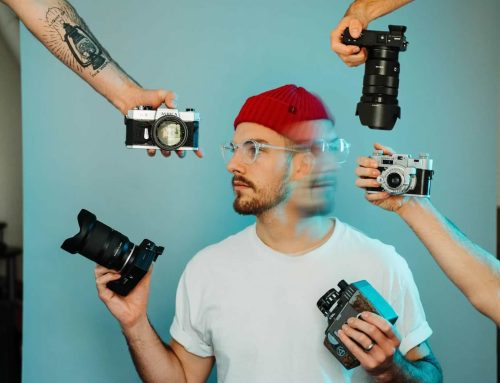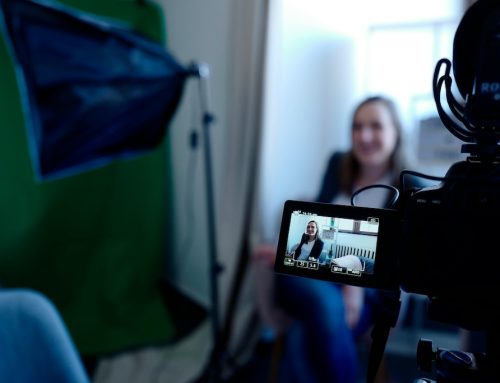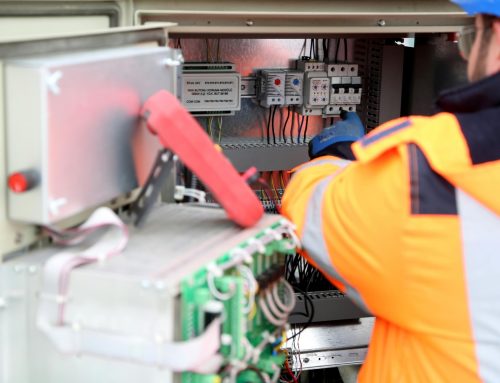By now, you’ve probably heard that artificial intelligence is changing everything—from how we search to how we shop. But if you’re running PPC campaigns or managing a digital marketing budget, that change isn’t theoretical. It’s here. And it’s quietly revolutionizing how ad dollars get spent—and what kind of return you actually see.
Just as Google’s AI Overviews have reshaped how organic results are displayed, similar automation is unfolding behind the scenes of Google Ads and Amazon Ads. Ad campaigns that once needed hands-on, hour-by-hour oversight are now being guided, or even outperformed, by AI-powered systems. If that sounds both efficient and a little unsettling, you’re not alone. Business owners and marketing managers across the board are asking the same questions: Is PPC still worth it? Is AI taking over? How much control do I still have over my own campaigns?
Let’s break it all down to help you make smarter, faster, more profitable decisions in 2025.
What’s Really Changed: AI and the New PPC Reality
Traditionally, running paid search campaigns meant juggling a dozen moving parts; bid management, ad copywriting, audience targeting, and ad scheduling, just to name a few. You’d spend time tweaking settings across multiple platforms, manually testing ad variations, and hoping your PPC tools didn’t lag behind real-time user behavior.
Today, AI algorithms have turned that model on its head.
Modern AI PPC management uses machine learning to study patterns across thousands of variables: user intent, device type, browsing habits, geographic location, and even time-of-day behavior. It doesn’t just react to performance—it predicts it. That means smarter bidding strategies, faster ad creation, and more nuanced audience targeting—often with minimal human input.
For example, with smart bidding, AI adjusts your bids in real time based on how likely a click is to convert. It can detect when a user has a higher purchase intent—even if your keywords don’t explicitly say so. And because these systems analyze campaign data at scale, they don’t just make faster decisions—they often make better ones.
How to Use AI in PPC Management (Without Losing the Plot)
If you’re wondering how to actually use AI in PPC, you’re not alone. Many businesses hear “automation” and assume that means giving up control. But here’s the truth: the best results happen when AI does the grunt work—and you steer the strategy.
Here’s where AI can genuinely enhance your PPC strategy in 2025:
- Keyword Research: AI tools like Google’s keyword research tool or third-party platforms use search volumes, competitor research, and user behavior insights to suggest relevant keywords you may never have considered.
- Ad Copy Ideas: Need to generate multiple ad headlines or try new ad formats (like video ads or sponsored brand posts)? AI excels at creating and testing ad copy variants based on performance data.
- Bid Adjustments: With AI adjusting PPC bids in real time, you’re not locked into static bids. Instead, you’re constantly adapting to live auction dynamics—without burning through budget.
- Campaign Management & Automation: From bulk campaign creation to automated reporting, AI-driven PPC software can now manage multiple PPC campaigns across platforms—freeing you up to focus on creative, customer-centric work.
- Landing Page Alignment: Tools like Google Analytics and conversion tracking software help connect AI-managed campaigns with landing pages that actually convert—so you’re optimizing the entire journey, not just the click.
The bottom line? AI doesn’t replace your expertise—it enhances it. And it helps you save time, cut down on wasted ad spend, and scale campaigns faster than manual methods ever could.
Will AI Take Over PPC?
Let’s be clear: AI is not here to “take over.” It’s here to take the repetition out of PPC management. That’s a critical distinction.
AI can analyze search queries, optimize bidding strategies, and surface keyword ideas faster than any human team. But it can’t understand your brand voice, your unique value proposition, or the subtle psychology of your target audience. Those are your edges—and they still matter deeply in 2025.
So, while AI now manages the heavy lifting of bid management, ad optimization, and even campaign performance insights, the strategic vision? That’s still yours to own.
Smart marketers aren’t resisting AI—they’re training it. Feeding it the right data, refining its guardrails, and guiding its output with clear goals. That’s the difference between campaigns performing and campaigns just running.
Is PPC Still Worth It in 2025?
Absolutely. But not for the same reasons it was 10 years ago.
PPC is still one of the fastest ways to gain visibility, test offers, and reach intent-driven users—especially for new products, time-sensitive promotions, or high-competition industries. In fact, in many verticals, PPC is faster than SEO when it comes to running ads that deliver results now rather than later.
But it only pays off when your campaigns are efficient, not bloated. And that’s where AI-powered tools shine. By eliminating wasted ad spend and refining your audience targeting with precision, you get better campaign performance for the same budget—or sometimes, even less.
The key is integration. Your PPC shouldn’t live in a silo. It should tie into your SEO, your content, your design—your entire digital ecosystem. (If your landing pages don’t convert, for instance, even the smartest bidding won’t help. That’s where a strong website development team becomes essential.)
CPC vs. PPC: Clearing Up the Basics
Quick sidebar—because this question still comes up all the time: What’s the difference between CPC and PPC?
- PPC (Pay-Per-Click) is the model: you pay each time someone clicks on your ad.
- CPC (Cost-Per-Click) is the metric: it tells you how much, on average, you’re paying per click.
Think of PPC as the system and CPC as one of the key KPIs inside that system.
The BlueHat Advantage: Your PPC Partner
AI may be changing the tools, but the goal remains the same: get in front of the right people, with the right message, at the right time—without wasting money in the process.
At BlueHat Marketing, we don’t just plug into the latest PPC automation platforms—we engineer full-stack, AI-supported advertising strategies that combine smart bidding, advanced ad management, and custom pricing models tailored to your goals. Our team has been navigating paid media since the early days of Google search ads, and we’ve helped clients thrive through every ad tech evolution—from banner ads to dynamic retargeting to AI-driven optimization.
We also know that automation isn’t a silver bullet. Our process includes strategic oversight, deep campaign optimization, and human insight where it counts, so your ad spend drives real business outcomes, not just impressions.
Whether you’re managing multiple campaigns, exploring new ad formats, or trying to fix a funnel that’s leaking budget, we’re ready to help. Contact BlueHat today to create smarter, leaner, AI-enhanced campaigns that convert—without the guesswork.





